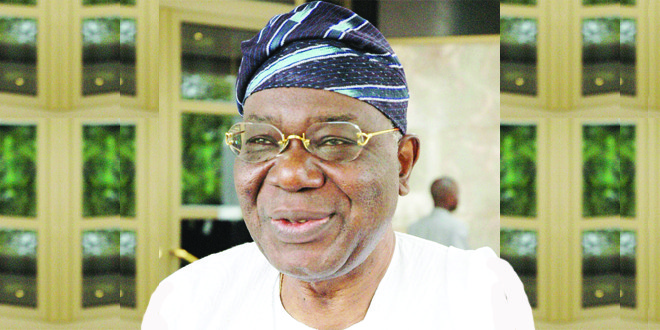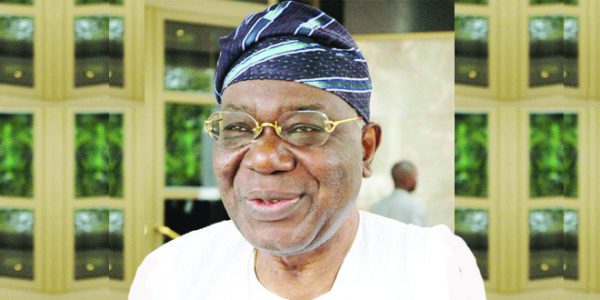Background and Education
The full appellation is Oloye Ernest Adegunle Oladeinde Shonekan. He was born on the 9th of May, 1936 in Lagos, Nigeria (then Western Region of British Nigeria). He is popularly known as a Nigerian statesman, nobleman, lawyer and businessman.
Oloye Ernest Shonekan is regarded as the 9th President of Nigeria. He was in office from 26th August 1993 to 17th November 1993, though he functioned as the head of the interim national government then. He was appointed the interim President of Nigeria by General Ibrahim Babangida Badamosi on 26 August 1993. Babangida resigned due to the annulment of the 1993 Nigerian presidential election.
Read more about Men You Should Know
The son of an Abeokuta-born civil servant, he was one of six children born into the family. Shonekan was educated at C.M.S Grammar School and Igbobi College, Lagos. He received a law degree from the University of London and was called to the bar. He later attended Harvard Business School.
Career
Prior to his political career, Shonekan was the chairman and chief executive of the United African Company of Nigeria, a large Nigerian conglomerate, which at the time was the largest African-controlled company in Sub-Saharan Africa. He joined the United Africa Company of Nigeria In 1964 and rose through the ranks in the company and was promoted to the position of an assistant legal adviser. He later became a deputy adviser and joined the board. In 1980, he was made chairman and chief executive. Shonekan cultivated a wide array of business and political connections.
Head of Transitional Council/ Interim National Government
On 2 January 1993, Shonekan assumed office as the head of the transitional council and head of government under General Babangida. At the time, the transitional council was designed to be the final phase leading to a scheduled hand over to an elected democratic leader.
Shonekan learned of the dire condition of government finances, which he was unable to correct. The 1993 budget was pegged to include a 28 billion naira deficit with little money left in its foreign reserves. The government was hard-pressed on debt obligations and had to hold constant talks for debt rescheduling. Babangida’s Armed Forces Ruling Council had designed a realistic two-year economic program. The program’s outline called for reducing the petrol subsidy, to bring in 65 billion naira to government coffers. A modification of VAT was also introduced and a plan to inculcate fiscal discipline.
Sign up to the Connect Nigeria daily newsletter
In August 1993, Babangida resigned from office, following the annulment of the June 12 elections. He signed a decree establishing the Interim National Government led by Chief Ernest Shonekan.
Economy, Democratisation and Political Issues
Shonekan had lobbied for debt cancellation but, after the election annulment, most of the Western powers had imposed economic sanctions on Nigeria. Inflation was uncontrollable and most non-oil foreign investment disappeared. The government also initiated an audit of the accounts of NNPC, the oil giant, an organisation that had many operational inefficiencies.
Shonekan was unable to control the political crisis which ensued following the election annulment. During his few months in power, he tried to create a new timetable for a democratic return though his government was hampered by a national workers’ strike. Opposition leader Moshood Abiola viewed Shonekan’s interim government as illegitimate.
Shonekan released political prisoners detained by Babangida. Shonekan’s administration introduced a bill to repeal three major draconian decrees of the military government. However, General Sani Abacha seized power on 17 November 1993.
Sources:
Wikipedia
BBC
Featured Image Source: News Express NG
Got a suggestion? Contact us: editor at connectnigeria dot com


